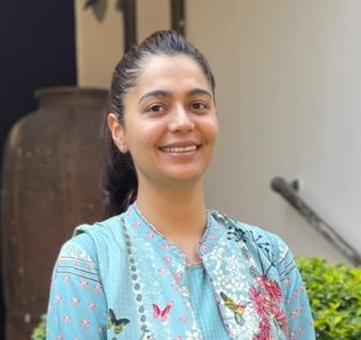GUEST COLUMN : WELLNESS IS AWARENESS

Monday, 10 January 2022 | Aditi Arora
Psychiatry and psychotherapy are now becoming a hot topic of discussion among various national forums. Celebrities, known sports and media persons are gathering the courage to speak of their psychological struggles with personal and professional obstacles. The message we hear often is that everything can be managed and treated through a good combination of medicines and regular psychotherapy. But what we really need to spread awareness about is the basics. The basics being that the government run health department should create mental health manifestos in the form of posters, radio advertisements etc. In these creatively drafted manifestos the content should aim at making the masses understand the importance of mental health, the basic symptoms that family, friends and colleagues should look out for and how to go about bringing in the required help.
Now this is where the issue remains untreated and unaffected. Being in the business I meet many people who are running from pillar to post trying to figure the difference between clinical psychology and psychotherapy. We also notice that many general physicians tend to prescribe mild medication to their patients who have decided to first consult their GP regarding the recurrent issues. Now the proper channel appears to be the following way. If one feels that any symptom such as sleeplessness, feeling uneasy, inhibition to take action and indecisiveness for example are pre dominantly present and not allowing the person to live a fulfilled life, they need to consult their family or local doctor. This is the crucial moment, where the family doctor who is already well aware of the patients’ history does a systematic referral. The patient is referred to a psychiatrist or a clinical psychologist for diagnostic purposes.
Once the patient has been educated and given the initial counseling about how to cope with their situation I urge the patient to reflect upon the viability of their session. Some good questions to ask yourself are as follows: Was I understood during the session? Do I need a diagnosis? Can I relate to my diagnosis? Could I relate to my mental health specialist? Would I like to continue sessions such as the one I received? If you have been suggested counseling and not medication, I highly recommend that you meet a few counselors before you zero in on your sessions. Look out for a counselor/psychotherapist who is high on integrity, with reasonably priced sessions; do not be afraid to ask for their qualifications. The most important pointer in India is that most counselors have not received their own counseling sessions. In foreign countries one has to complete their own therapy in order to be a valid candidate for licensure. Hence take a thorough interview of your counselor and ensure he/she is capable of taking you on and has experience in handling such patients/clients.
I think at this point I must deviate a bit and illustrate with an example in order to drive my point home. I once had a beautiful young girl who checked in for sessions after being diagnosed with General Anxiety Disorder (GAD). After a lengthy and detailed first session, I realised that the diagnosis was quite unnecessary and her situational issues could be easily resolved with some astute psychotherapy. I also made a note that this extremely intelligent young woman was looking for structure in her everyday chaotic life. With effort and regularity of therapy sessions, my patient not only anchored herself but proved her own diagnosis as defunct. My only plea to people is to be aware. Do take that extra step to investigate about your psychotherapist/clinical psychologist. Are they updating their degree? Have they participated in any latest national or international conferences, what is their understanding of the diagnostic manuals and above all are they eager to diagnose you or are they ready to go beyond a diagnostic label? It is good for any specialist in this field as the American and European manuals are constantly being updated and old diagnosis being deleted. As we all now know that ‘hysteria’ is a defunct diagnosis and no longer part of any manual.
These are some crucial pointers. Be aware that in India a clinical psychologist, psychotherapist or a general counselor is not certified or accomplished to medicate you. They might have a basic knowledge of psychopharmacology but are in no way adept to decide or recommend medication or dosage. Many mental health specialists are also deeply into practicing and preaching teachings of some living guru that they probably believe in. This seems to be a heavy trend weighing in on a very scientific field. I am in no way against anyone finding their peace but there is a thin line between spirituality and social science. A therapeutic intervention is far from a spiritual teaching. Also do remember that spirituality is a very personal journey, no one can burden you with teachings that you are not ready to comprehend.
Some general awareness can make treatment and help effective and viable for our invisible illnesses. Our awareness can lead us to satisfactory results and bring back the peace and stability that sometimes is lost among our personal chaos. There is so much to be done in organising our mental health sector and it cannot be done without educating and creating awareness in the affected population. Sometimes a little dose of awareness acts like an intervention in itself. My late mentor Felix De Mendelssohn used to say-‘sometimes means all the time’.
(The author is a Dehradun based psychotherapist trained at the University of Vienna. The views expressed are personal)





